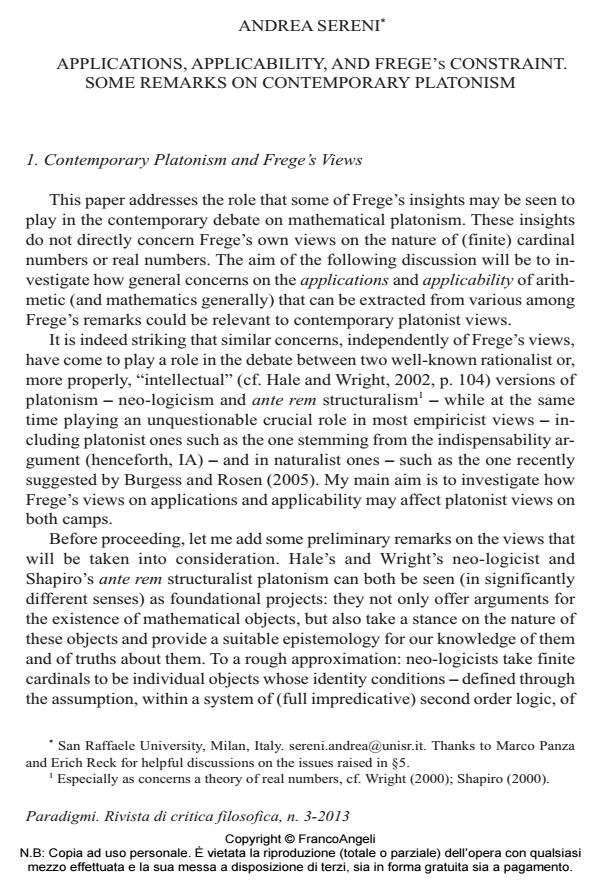Applications, applicability, and Frege’ s Constraint. Some remarks on Contemporary Platonism
Journal title PARADIGMI
Author/s Andrea Sereni
Publishing Year 2014 Issue 2013/3
Language English Pages 20 P. 91-110 File size 114 KB
DOI 10.3280/PARA2013-003007
DOI is like a bar code for intellectual property: to have more infomation
click here
Below, you can see the article first page
If you want to buy this article in PDF format, you can do it, following the instructions to buy download credits

FrancoAngeli is member of Publishers International Linking Association, Inc (PILA), a not-for-profit association which run the CrossRef service enabling links to and from online scholarly content.
Le idee di Frege sulle applicazioni e l’applicabilità dell’aritmetica, e della matematica in generale, suggeriscono un certo numero di requisiti che un resoconto filosofico dell’aritmetica (della matematica) dovrebbe soddisfare. I punti rilevanti di tali requisiti sono enucleati e precisati e viene discusso come essi possano essere valutati dai sostenitori di posizioni platoniste contemporanee, sia di quelle sul versante latamente razionalista: il neo-logicismo di Hale e Wright e lo strutturalismo ante rem di Shapiro, sia di quelle sul lato empirista e naturalista: il platonismo indispensabilista e il platonismo "di default" di Burgess e Rosen. L’autore conclude offrendo alcune formulazioni deboli del Frege’s Constraint che, appropriatamente formulato, mostra di poter essere soddisfatto anche da posizioni non logiciste e non platoniste.
Keywords: Applicability of Mathematics, Frege’s Constraint, Neo-logicism, Structuralism, Empiricist platonism, Naturalist Platonism.
Andrea Sereni, Applications, applicability, and Frege’ s Constraint. Some remarks on Contemporary Platonism in "PARADIGMI" 3/2013, pp 91-110, DOI: 10.3280/PARA2013-003007